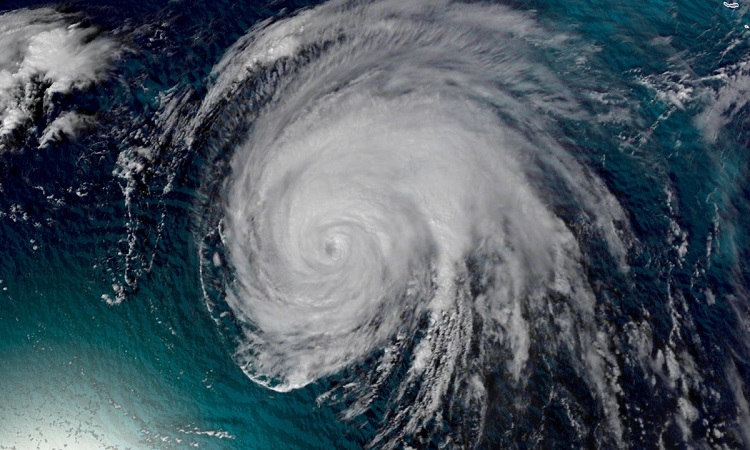Ranked in category 5 Saturday night, hurricane Lorenzo is expected to touch the Azores archipelago in a few hours, before heading to the British coasts. It has since weakened slightly but remains potentially very dangerous.
With winds of more than 300km / h a few days ago, Hurricane Lorenzo is the most powerful ever observed in the north and east of the Atlantic basin. Classified in category 5 in the night of Saturday to Sunday, it has since been reclassified in category 3, with winds reaching on average 185 km / h. He is expected to reach the Azores archipelago this Tuesday, before heading slowly to the British coast this weekend, according to the US National Hurricane Center (NHC). In the meantime, however, it should continue to weaken.
“A gradual weakening is expected in the next few days, but Lorenzo should remain an important hurricane throughout this period,” the center said. The hurricane should still produce total rainfall accumulations of 7 to 15 centimeters over much of the Western Azores this Monday. And from 3 to 5 centimeters on the central Azores on Tuesday and Wednesday. Flash floods potentially very serious are expected. Caution is therefore required for all inhabitants of these regions.
Lorenzo is now an extremely powerful category 5 hurricane. It is the strongest hurricane on record this far north and east in the Atlantic basin. pic.twitter.com/nUR5ugJws7
— National Hurricane Center (@NHC_Atlantic) September 29, 2019
Should we blame global warming?
It has been pointed out that in the Atlantic, hurricanes have intensified more and more rapidly over the last 30 years. A quite natural phenomenon, on the one hand, can explain the trend: the multi-decadal Atlantic oscillation. We then observe a natural variability of sea surface temperatures, alternating between colder and warmer phases. Each phase can last for several decades. It should be known that since the 1990s, we are anchored in a “hot phase” of this oscillation. And we know that high ocean surface temperatures favor the formation of hurricanes.
Nevertheless, the effect of anthropogenic global warming should not be ruled out. More and more scientists have noticed (especially since Hurricane Dorian earlier this year) that hurricanes are strengthening because of global warming. It was also pointed out that this changing climate, which seems to change the way air circulates in the atmosphere, slows the speed of movement of these events. Hurricanes and storms are therefore slower (by 10% on average) than a few years ago. Which implies, necessarily, much more potential damage.




